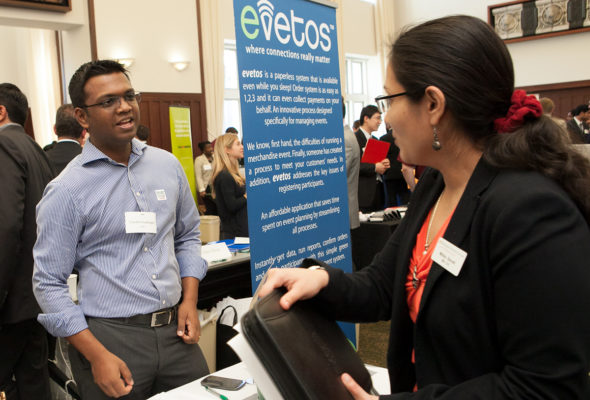Congratulations! You just accepted an invitation to interview with your dream firm. All the company research, resume polishing and networking at Meet the Firms, at information sessions and with your network, has paid off. What are the next steps to ensure you are ready to conduct a successful interview? Sally Pinckard, the Associate Director of Career Education at Olin’s Weston Career Center, provides this advice to ace the job interview:
Learn everything you can about the company
Both parties are looking for the best fit. Learn as much as you can about the company, culture, and specific process, so you are ready to demonstrate that you are the candidate who best fits what they are looking for. Along with your research, one of the best ways to learn about what to expect in the interview is to connect with alumni in the firm. If there are alumni connections, ask for advice and insight into the interview process. Talking with recent hires at information sessions and workshops, using LinkedIn’s advance search process to find Olin and WashU alumni in the company you will be interviewing with, and asking for insights from fellow students in the student groups where you are a member are all great ways to connect with alumni for guidance. Most are more than willing to help.
Prepare for the type of job interview the recruiter will conduct
Include this in your company research. Most interviews will fall into these categories: behavioral, technical, and case interviews. Some will be conducted face to face, but many first round interviews will be conducted over the phone phone or on Skype. For detailed information on how to prepare for these interviews, see pages 41 and 42 in the WCC Career Guide. Also be sure to check out the Weston Career Center’s Behavioral Interview Questions Guide and Functional/Technical Questions Guide.
First impressions count. Practice your interviewing skills
It’s always important to present your best self. The impressions you leave during the interview (and after!) should be no accident. Practice your answer to, “Walk me through your resume” and other interview questions in a mock interview with a Weston Career Center advisor. Prepare well-informed, inquisitive, and articulate questions for the interviewer during and at the end of the interview. Make sure they are questions for which the answers can only come from a person who has worked in the company (and not something you can find quickly on the company’s website). Check the apparel you plan to wear to the interview to make sure your clothes are clean and in good shape.
Follow up after the job interview
Be prepared so that you can write a thank you note shortly after the interview is complete. Recruiters tell us repeatedly that they are surprised that more students don’t send thank you letters after an interview. Therefore, the letters they do receive stand out, especially well written notes. (AND, recruiters often comment on how impressed they are when the notes are hand written the old fashioned way.) Why? In addition to being a polite way to acknowledge the time spent with you, thank you letters are another opportunity to sell yourself. Have professional stationary on hand so that you can write your thank you note in a timely manner, which is usually within 24 hours of the interview. By writing both an email and hand written thank you, you are signaling your high level of interest in them because you took the time to express your thanks in writing. For more information on the follow up process and thank you notes, see page 45 in the WCC Career Guide.
Sally Pinckard has held positions in merchandising, retail management, and human resources for May Department Stores, now Macy’s. Sally teaches MGT250A, Building Your Career Foundation, and is a certified business etiquette instructor.









